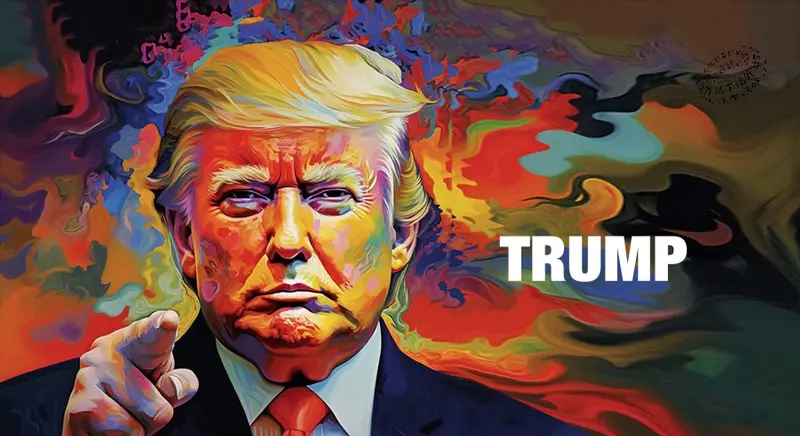Focus on the FIT21 Act: A New Driving Force for Regulation of the U.S. Crypto Market and Political Power Shift
Source: Avichal - Electric ϟ Capital X Account
Author: Avichal - Electric ϟ Capital
Compilation: Deep Tide TechFlow
The U.S. House of Representatives voted on FIT 21. Biden has just stated that he hopes to establish comprehensive cryptocurrency regulations. So,
What is FIT21?
Why is this bill important?
What does FIT21 reveal about changes in political alliances and power in the U.S.?

What is FIT21?
FIT21 is the “21st Century Financial Innovation and Technology Act”, which is the first bill attempting to comprehensively define how the U.S. should regulate the crypto market.
FIT 21 has several key areas and provisions:
Defines the jurisdiction of the Securities and Exchange Commission (SEC) or the Commodity Futures Trading Commission (CFTC)
Provides consumer protection around transparency and disclosure for promoters and endorsers
Prohibits institutions from preventing people from using cryptocurrencies
Requires the Treasury Department to study stablecoins
FIT21 attempts to define terms surrounding decentralized systems and when a network is sufficiently decentralized to no longer be considered a security. It introduces a process to certify whether an asset is sufficiently decentralized and labels it as a commodity. This is a huge breakthrough.

The SEC must review applications and respond within 90 days. If the SEC determines that an asset operates without a controlling entity, then that asset is classified as a commodity, and the U.S. Commodity Futures Trading Commission has jurisdiction.
This is not ideal for those skeptical of the U.S. SEC. However, establishing clear rules is a significant step forward.
So, why is FIT 21 important?
After three and a half years of effort, I learned one thing: Political and legislative progress is often incremental and imperfect, but occasionally there are significant breakthroughs.
When you can turn something you want into actual law, embrace it.

FIT21 is not perfect, but it brings us one step closer. We not only won a new battle but also scored points in this game. We have shown the world that we know how to get things done. And we may not have such an opportunity again for years.
There is no corresponding bill for FIT21 in the Senate. Therefore, it will not become law yet.
Today's vote is performative, but 80% of the power players are performing.
What does FIT21 reveal about changes in political alliances and power in the U.S.?
But who is performing? For whom? What do their performances tell us? These performances will indicate the direction the world is heading.
This vote tells us:
The Republican Party has been concerned about this issue from the beginning
The Democratic Party is worried about losing votes, funding, and losing to Republicans on this issue
The Democratic Party is breaking with Elizabeth Warren
The President is breaking with Warren
The center of power is shifting, and cryptocurrency is winning.
@PatrickMcHenry, @RepFrenchHill, @GOPMajorityWhip, and others have been advocating for cryptocurrency on behalf of Republicans for years. With 50 million American cryptocurrency holders maturing, they are well-prepared for the shift in power, which is a significant validation of their strategy.
If you look at whose opinions have changed in the past six months, it’s the moderate Democrats. Similar to the Democrats who voted to overturn SAB121, @RepRitchie, @RepMoulton, @RepSlotkin, we now have people like Jim Himes @RoKhanna voting alongside their Republican colleagues, like @RepWileyNickel.

A year ago, this might have been swiftly vetoed by the President. Today, the White House wants to help clarify cryptocurrency regulations and will not veto these regulations.
A 180° turn in attitude. White House staff brought their colleagues here.

What does all this mean? What signal does it send?
It indicates that moderate Democrats have recognized the importance of cryptocurrency.
There are enough people here to sway the election.
There is enough funding to assist in elections.
The Democratic Party is losing these voters.
Elizabeth Warren was once the focal point of technology and cryptocurrency regulation. Due to her loss of votes and donations for the party before 2024, she has lost much power. The Democratic Party has now signaled that they do not want to be forgotten alongside Warren.
In 2025, the Senate will appoint new commissioners to the SEC, CFTC, FDA, FTC, and more. If Warren has power, expect people like Gensler. If Warren does not have power, we will also get people like @HesterPeirce (Note: The author indicates that the influence of cryptocurrency in U.S. politics will continue to deepen regardless).










